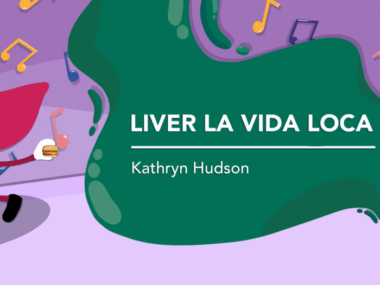When listening to your liver, don’t ignore your heart
What I've learned about the links between MASH and cardiovascular disease
Written by |

Three years ago, I had a heart attack. Yes, I know this column is focused on metabolic dysfunction-associated steatohepatitis (MASH), a type of fatty liver disease, but bear with me. Cardiovascular disease is often a comorbidity of MASH.
Like two villains teaming up, these conditions frequently go hand-in-hand. If you think that’s unfair, so does my heart.
During the COVID-19 pandemic, I, like many others, limited my outings, including doctor appointments. In the year preceding my heart attack, I experienced two “cardiac events” that didn’t qualify as heart attacks because of the absence of elevated troponin proteins, which are markers indicating heart muscle damage. These tests are crucial for diagnosing heart attacks promptly. My initial test didn’t show significant elevation, so it was repeated. The culprit? My liver.
The heart of my health journey
Our organs share a complex, interdependent relationship within the body. While the heart tirelessly pumps blood, the liver filters toxins from the bloodstream. A compromised liver struggles to process these toxins, potentially leading to systemic issues. In my case, a liver-enlarged blood vessel began leaking, prompting my heart to compensate until it nearly failed.
That led to a heart attack and a subsequent esophageal banding surgery. I was eager to recover quickly, as I had a move planned the following weekend. Relying on others, I managed to relocate to my new apartment. A few weeks later, I suffered a smaller heart attack, resulting in a two-day hospital stay.
Since then, a cardiologist, a kind man with a gentle demeanor, has become part of my healthcare team. There was a time when I hadn’t anticipated needing a heart specialist, but that changed. My mother had heart issues stemming from a faulty valve and ultimately passed away after delaying medical care. I was 27 when she died.
Her passing wasn’t in vain. I stopped taking my own health for granted.
The year after her death, I underwent gastric bypass surgery to lose weight, which was not a decision I took lightly. Post-surgery, I faced complications as I dropped from 364 to 277 pounds. While I was ostensibly healthier, it didn’t always feel that way. Years later, I began losing weight rapidly without trying, despite efforts to lead a healthier lifestyle.
Eventually, I was diagnosed with MASH. At that time, my heart, despite a murmur, was functioning well. Now I take medication twice daily to keep my heart in check.
It’s crucial to assess your cardiac health before experiencing a heart attack or related event. Liver disease can inflict more damage than you might realize. A doctor once told me that if liver disease didn’t claim a patient’s life, their heart would. I feel fortunate not to have fulfilled that prophecy.
Depending on your MASH stage, consider consulting your hepatologist about seeing a cardiologist. Not everyone with liver disease will develop heart issues, but it’s important to note that MASH patients have a significantly higher risk of cardiovascular disease when compared with those without liver disease, according to a 2024 study in American Heart Journal Plus.
Your liver and heart need to be allies. Take care of both. You don’t need internal adversaries.
Note: Liver Disease News is strictly a news and information website about the disease. It does not provide medical advice, diagnosis, or treatment. This content is not intended to be a substitute for professional medical advice, diagnosis, or treatment. Always seek the advice of your physician or other qualified health provider with any questions you may have regarding a medical condition. Never disregard professional medical advice or delay in seeking it because of something you have read on this website. The opinions expressed in this column are not those of Liver Disease News or its parent company, Bionews, and are intended to spark discussion about issues pertaining to liver disease.



Leave a comment
Fill in the required fields to post. Your email address will not be published.